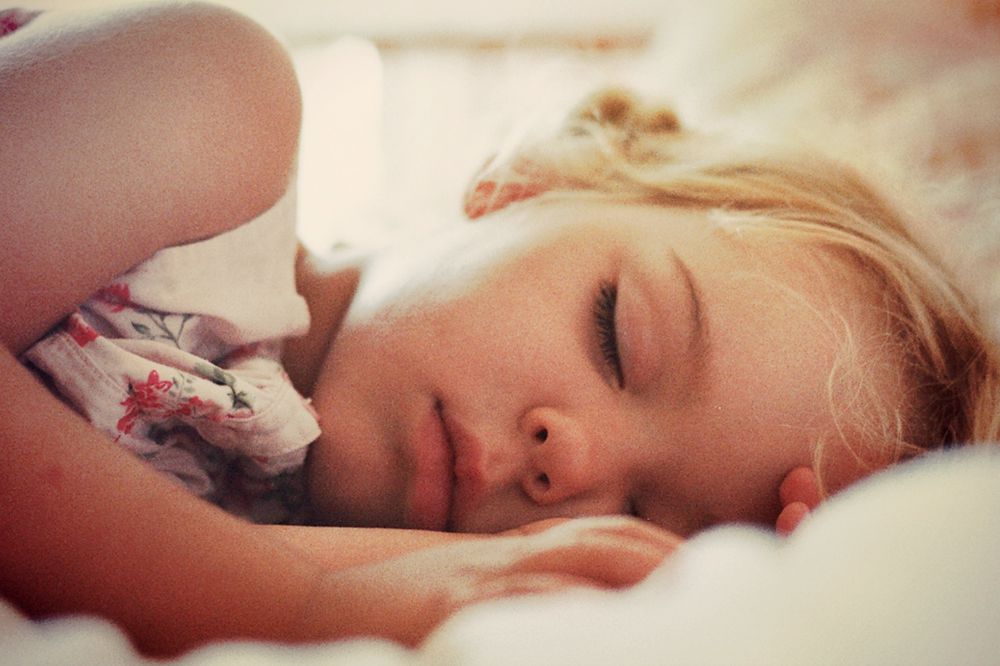By Joanna Santillan
Sleep deprivation is a root cause of many problems that shows up almost every day: fatigue, learning and concentration difficulties, and accidents. Everyone can be affected by sleep deprivation, especially children. Why? Because there are a lot of things that capture their attention nowadays. They get caught up with most of these and forget to log a full length of sleep.
Sleep is as important to the human body as food and water, but many of us don’t get enough sleep. Insufficient sleep, inadequate quality of sleep or disruptions to the sleep-wake cycle has very unhealthy consequences on how we function.
Effects of Sleep Loss on Children.
The subject of sleep loss on both adults and children is quite a well-studied one. Many research and studies have said the following about sleep loss on children:
- Sleep loss causes a range of schooling problems, including naughtiness and poor concentration.
- Chronically sleep-deprived teenagers are more likely to have problems with impulse control, which leads to risk-taking behaviours.
- Sleep problems in teenagers are associated with increased risk of disorders such as depression and attention deficit hyperactivity disorder (ADHD).
- High school students who regularly score C, D or F in school tests and assignments get, on average, half an hour less sleep per night than high school students who regularly get A and B grades.
How much sleep is enough?
Sleep requirements differ from one person to the other, depending on age, physical activity levels, general health and other individual factors. But in general:
- Primary school children – need about nine to 10 hours of sleep. Studies show that increasing your child’s sleep by as little as half an hour can dramatically improve school performance.
- Teenagers – need about nine to 10 hours too. However, they have the most difficulty in maintaining a healthy sleep pattern because of increased social engagements and peer pressure. These cause a reduction in sleep time.
- Adults – need about eight hours, depending on individual factors. Adults tend to need less sleep, but be guided by your state of alertness – if you feel tired during the day, aim to get more sleep.
The National Sleep Foundation offers this guideline regarding how many hours of sleep a child should get during a 24 hour period:
- Newborns (birth to 2 months): 10.5 – 18 hours
- Infants (3-11 months): 9-12 hours
- Toddlers (age 1-3): 12-14 hours
- Preschoolers (age 3-5): 11-13 hours
- School-age (age 5-12): 10-11 hours
- Adolescent (age12 – 18): at least 8 1/2 hours
It’s vital for your children to have enough sleep. When they have enough sleep, they can function right throughout the day.
Tips to help your children to have enough sleep.
-
Set up a sleep schedule.
Sleep is set up by an instinct called the Circadian rhythms, or the sleep-wake cycle. This is regulated by light and dark, and these rhythms take time to develop. That’s why you need to establish a sleep schedule.
It’s easy to follow a sleep pattern when it’s organized in a schedule. If you get any resistance from your kids, that’s quite natural. Just explain to them that when they get enough sleep, they’ll become healthy and they will perform better at school and at play.
Just remember to be consistent with this schedule. Adjust your family activities according to this sleep schedule.
-
Make their bedrooms conducive for rest.
Take a bath/bathe them before going to sleep. Read them a bedtime story. Set a relaxing music, and give them a goodnight hug and kiss. Improve their sleeping environment in any way you can. Keep it dark and soundproof, turn off lights. If possible, takeaway any source of distraction. (ex. TV, computer) Make sure that there environment is cool and quiet.
-
Never use sleep as a punishment to your child.
When your kids show bad behaviour, don’t use sleep as punishment. You must encourage sleep as a positive action so they’ll understand that sleep will help them grow big and strong.
-
Give your babies a breath of fresh air.
The almost abandoned custom of giving a baby plenty of daily fresh air may have a hidden benefit in helping a baby to sleep better at night, according to research. A study has found that babies sleep longer when exposed to plenty of light in the afternoon, a time when many mothers used to put babies in the garden or take them to a park.
-
Buy them a reminder.
You can give them teddy bears, stuff toys, pillows, and blankets. These are called transitional objects. Transitional objects help them remind themselves to fall asleep. This way, parents don’t have to be there in order for their kids to fall asleep.
-
See a sleep specialist.
If you’ve done every possible tip on this list and nothing seems to work, go see a sleep specialist. Your child can be placed in a lot of stress and his/her health might be compromised.
-
Refrain from any physical activities hours before sleeping.
Physical activities increases the adrenalin output in your blood, making you more alert and focused. Good for certain situations, but not before sleeping. So make sure your child is relaxed before going to bed. Use relaxation techniques to help them fall asleep quickly.
Remember
Not getting enough sleep due to sleep disruptions and short sleep cycles can cause reduced alertness, concentration & awareness, slower reaction time, poorer memory, moodiness, loss of motivation, forgetfulness, poor decision making, and microsleep (brief periods of involuntary sleeping that range from a few seconds to a few minutes in duration).
As you can see, these effects are huge contributing factors in the performance level of your child in school and at play, and in his/her growth process. So the notion of just letting loss of sleep pass is out of the conversation. This is an urgent and important issue that must be addressed immediately so no bad thing can happen to your child.
 About the Author: Joanna Santillan
About the Author: Joanna Santillan
With a desire to make life easier for mums in UAE, Joanna – with the help of her husband -started Afterschool.ae, the first platform dedicated in listing all UAE kid’s activities for parents and children alike. She is an entrepreneur mum blessed with 3 lovely children.



This is more like a question. My 3 year old NEVER naps. She gets about 10-11 hours of sleep at night, but is a huge nap refuser.
What is a parent to do? The article mentions to not use naps as a punishment. In her case, if if I were to send her to her room, tuck her in and say, “Time for a nap” and then she begins to cry, wouldn’t she consider that a punishment in her mind?
It may be that your daughter doesn’t need a nap. Though many three year olds still need a nap, there are many who don’t. If she has been resisting all this time, and still getting a good amount of sleep at night, I certainly wouldn’t force the issue with her. Explore other ways for her to recharge that involve quiet play, rather than sleep.
From jr high on, my daughter engaged in a vicious cycle of working late into the night to do homework and rising early to go to school. The more tired she was, the longer her homework took to do. She did nothing else, often sleeping through her one extra curricular activity. We spent hours everyday trying to get her through her day. In her Jr. year of high school, she was diagnosed with an anxiety disorder (ocd) and treated with meds. and therapy. Also took her to a sleep specialist. Still no progress on sleep or work habits. We found a therapist in her senior year who told her that there was nothing he or anyone could do for her if she didn’t get regular 8 hrs of sleep. I was so happy to finally get support for this. He “prescribed” melatonin an hour before a corrected bedtime. It worked like a charm. A half hour after taking it, she would be flopped on her bed sound asleep. Usually fully dressed. A few months later, she is now getting ready for bed on time, getting herself up and to her summer job, making new friends and planning social events. Her quality of life has improved dramatically and the stress on everyone around her is gone.
I’m glad to hear that your daughter is doing well. I’m no specialist, but if there’s an advice I’ll be taking and giving, it’s this: always consult a specialist before going on treatments.
Thank you. That is excellent advice. The melatonin was checked with her prescribing physician first!
It is not always the right thing for teens.
My main point is meant to be that getting the right sleep has made a huge difference. Thank you for another helpful article.
This is awesome! Thank for the opportunity 🙂
You’re so welcome Joanna. And thank you to you too!